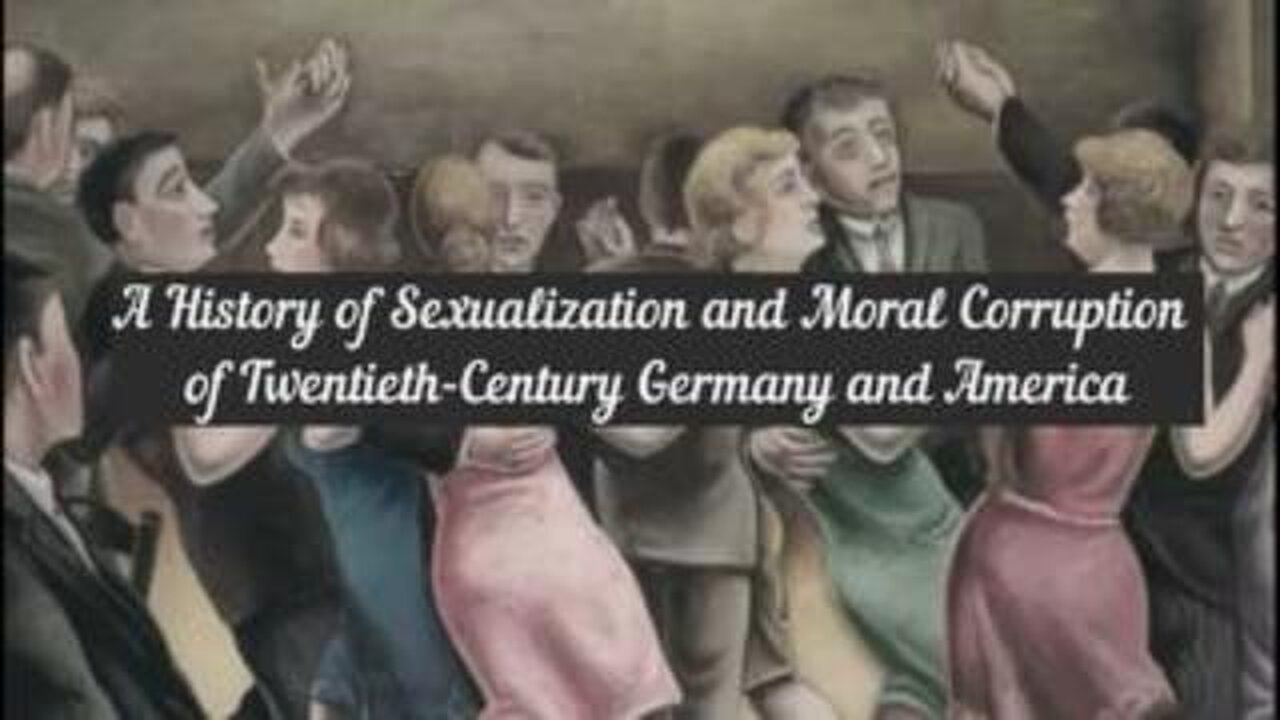Premium Only Content

A History of Sexualization and Moral Corruption of Twentieth Century Germany and America
The twentieth century witnessed evolving attitudes toward sexuality and morality in Germany and America, shaped by social upheavals, scientific advancements, and political ideologies. In Weimar Germany (1919–1933), post-World War I liberalization fostered cabaret culture, the decriminalization of prostitution via the 1927 Law for Combatting Venereal Diseases, and Magnus Hirschfeld's Institute for Sexual Science, which advocated for homosexual rights and sex education amid debates over public indecency. The Nazi regime (1933–1945) suppressed these reforms, promoting Aryan reproduction through eugenics while persecuting "deviant" groups, leading to an estimated 100,000 arrests under Paragraph 175. Postwar West Germany experienced a sexual revolution in the 1960s–1970s, influenced by the contraceptive pill and student movements, challenging Adenauer-era conservatism. In America, the 1920s "flapper" era introduced freer social norms, followed by the 1960s sexual revolution driven by the pill, Kinsey Reports, and counterculture, culminating in legal shifts like Griswold v. Connecticut (1965) and Roe v. Wade (1973). Both nations grappled with tensions between liberation and backlash, including moral panics over media and youth sexuality, reflecting broader transitions from Victorian restraint to modern individualism.
-
 1:26:13
1:26:13
FullDocumentary
18 hours agoTop 5 Bob Lazar Claims the Experts Couldn’t Debunk (1998)
206 -
 2:08:03
2:08:03
Barry Cunningham
3 hours agoBREAKING NEWS: PRESIDENT TRUMP SPEAKS TO MCDONALD'S EXECUTIVES AND MORE NEWS!
8.25K9 -
 LIVE
LIVE
Spartan
3 hours agoPro Halo Player, insta locking Neon, plays Valorant for the first time since Beta. Rusty af on MnK
78 watching -
 0:54
0:54
Gaming on Rumble
5 hours agoRumble Premium x Preplexity Pro Subscription Bundle
581 -
 LIVE
LIVE
LFA TV
1 day agoLIVE & BREAKING NEWS! | MONDAY 11/17/25
603 watching -
 LIVE
LIVE
Sen D Regon
1 hour agoExophobia Ep1 | Shoot'en Me Some Space Aliens
30 watching -
 LIVE
LIVE
JDubGameN
1 hour agoArc Raiders | Road to 100 Followers | DubNation LIVE
31 watching -
 LIVE
LIVE
The Jimmy Dore Show
2 hours agoWill Trump’s Attacks on Massie & MTG KILL MAGA? Candace SILENCES Zionist CNN Reporter! w/ Kim Bright
8,506 watching -
 LIVE
LIVE
AUXgaming
1 hour ago👽 Charles and Lewis need to give the BIRD to their Boss! 👽 #1 ALIEN ON RUMBLE 👽 POSITIVE VIBES! 👽
15 watching -
 53:42
53:42
The White House
9 hours agoPresident Trump Delivers Remarks at McDonald's Impact Summit
11.8K14